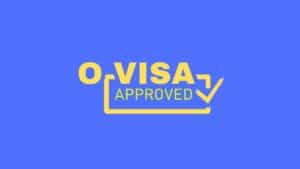Let’s find out the relation between 240-Day Extension Rule and O visa. Have you ever wondered what will happen if you have filed a petition for an extension of your O-1 nonimmigrant visa and USCIS does not approve it before your I-94 expiration date? Will you have to leave the United States because your nonimmigrant status has expired, and now you accrue unlawful presence in the U.S.? Or, will you be given extra time to stay in the U.S. until USCIS decides on your extension petition? Would you be able to work if you could stay? This article will discuss what will happen next in detail and guide you if you ever fall into this situation.
What is an O-1 Visa?
The United States provides ample opportunities to alien workers who possess requisite skills. One such prime example is the O-1 nonimmigrant visa for the individuals who possess extraordinary abilities in science, arts, television, business, athletics, and the individuals who have a record of exceptional achievements in the television and motion picture industry.
The only significant limitation is that a nonimmigrant visa is issued for a brief period of 3 years. However, the O-1 visa holder could renew an approved O-1 Visa in 1-year increments by filing subsequent petitions.
Suppose you fulfill the eligibility criteria and have just reasons to extend your visa. In that case, after your employer or agent has filed your petition on time, there will be two possible outcomes:
- USCIS will approve your petition before your I-94 expiration date.
- USCIS will not approve your petition before your I-94 expiration date.
This article will discuss in detail the scenario where USCIS delays the approval of your petition.

240-Day Extension Rule
USCIS sometimes faces delays in processing the applications/petitions. So, they have introduced a regulation that will provide a 240-day extension of employment authorization for some classes of nonimmigrant visa holders on whose behalf a timely extension petition has been filed.
The 240-Day Extension Rule protects the interest of the nonimmigrants working in the U.S. in good faith and following the rules and regulations of USCIS and are eligible for an extended work visa. However, unfortunately, their visa application/petition cannot be approved due to a delay in USCIS processing. In that case, this regulation will grant them a 240-day grace period and allow them to work in the U.S. with certain limitations that we will discuss later in this article.
The primary regulation is found in 8 C.F.R. 274a.13(b)(20). It reads as follows:
“(20) A nonimmigrant alien within the class of aliens described in paragraphs (b)(2), (b)(S), (b)(8), (b)(9), (b){10), (b)(11 ), (b)(12), (b)(13), (b)(14), (b)(16), (b)(19), (b)(23), and (b)(25) of this section whose status has expired but on whose behalf an applicant on for an extension of stay was timely filed pursuant to §214.2 or §214.6 of this chapter. These aliens are authorized to continue employment with the same employer for a period not to exceed 240 days beginning on the date of the expiration of the authorized period of stay.”
[emphasis added]. 8 C.F.R. 274a.13(b)(20)
It continues, “[s]uch authorization shall be subject to any conditions and limitations noted on the initial authorization. However, if the district director or service center director adjudicates the application prior to the expiration of this 240 day period and denies the application for extension of stay, the employment authorization under this paragraph shall automatically terminate upon notification of the denial decision[.]”
8 C.F.R. 274a.13(b)(20)
Does the 240-Day Extension Rule cover O-1 visas?
The 240-Day Extension Rule is aimed to cover most of the nonimmigrant visas, including an O-1 visa. Therefore if your O-1 status has expired, you may be permitted to continue your previously authorized employment for a maximum period of 240 days while your extension application is pending with USCIS.
Conditions for 240-Day Extension Rule
You do not get automatically eligible for a 240-day rule regulation benefit if you fall under the nonimmigrant category covered by it. However, USCIS will make sure you fulfill certain conditions before allowing you a 240-Day Extension Rule. These are as follows:
- You have filed your extension petition before your Form I-94 expires.
- You have not violated any terms of your nonimmigrant status.
- You must be holding nonimmigrant status within the specified classes of nonimmigrant categories covered by 240-Day Extension Rule. For example, an O-1 visa comes under this list.
- Your O-1 status should expire because while you are under your valid status, you cannot enjoy a 240-days grace period.
There are few more conditions that the regulation places on the nonimmigrant to benefit from this rule:
- The nonimmigrant is not allowed to change his employer during that period of 240 days. Hence, an O-1 visa holder is only authorized to work with the same employer for whom he/she was granted the visa. He/she cannot change his employer during this period.
- This regulation will not apply if the pending petition is for the change of nonimmigrant status. So supposedly, you have a pending petition to convert your O-1 status to EB-1 status, and your I-94 expires. You cannot take the benefit of this regulation in this case.
- Lastly, if there were any conditions or limitations on your initial O-1 authorization, those conditions or limitations will remain the same.
Answers to specific situations:
What will happen after USCIS rejects your petition during the 240 days?
If during these 240 days your petition for O-1 extension is denied by USCIS, you have to cease the employment you are engaged in and leave the U.S. immediately. However, you can still apply for an O-1 visa outside the U.S.
What will happen if your petition is pending at USCIS and 240 days are over?
The 240-day grace period is over after your I-94 expiration date, and your petition is pending at USCIS because of a delay in processing. Again, you have to cease the employment you are currently engaged in, but you do not need to leave the U.S. Therefore, it is advisable to apply for an extension at least 60 days before your I-94 expires.
What will happen if USCIS approves your extension petition during the 240 days?
If USCIS approves your extension application, then your approval date will relate back to your I-94 expiration date, and your status, while your application was pending, would be considered lawful.
Conclusion
O-1 visas are always issued for a temporary period, and in most cases, the nonimmigrants apply for an extension. It is always recommended to meet all the conditions required to get a 240-day rule regulation benefit and apply for an extension on time so that you will not face any trouble during the extension petition processing.
If still, you require any help in understanding the process, our lawyers at Sethi and Mazaheri immigration law firm are always happy to assist you.








 by Prozco®
by Prozco®